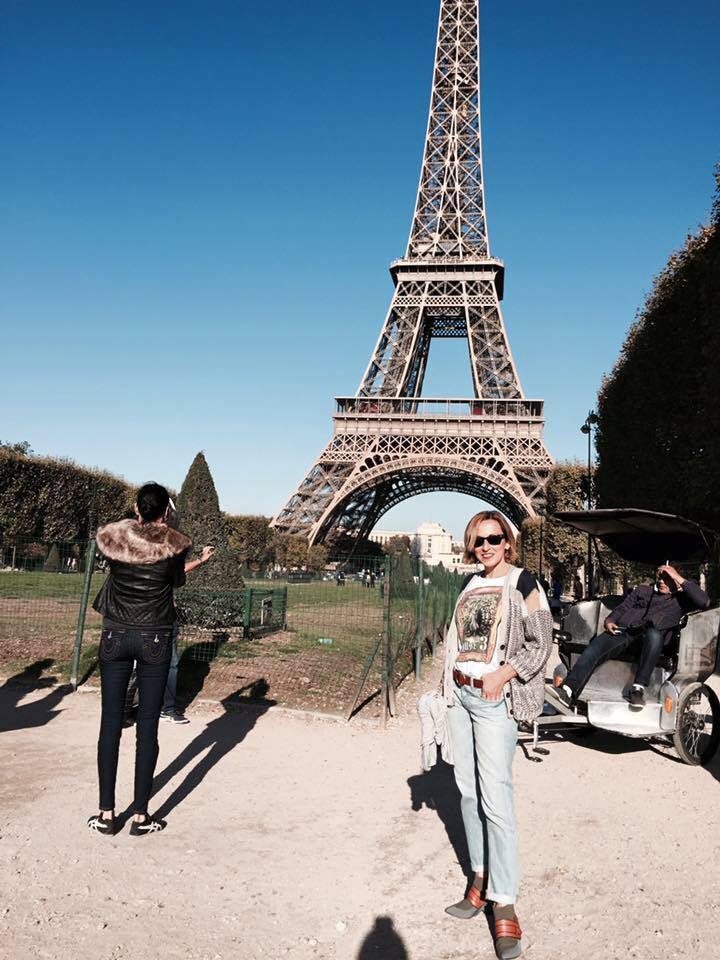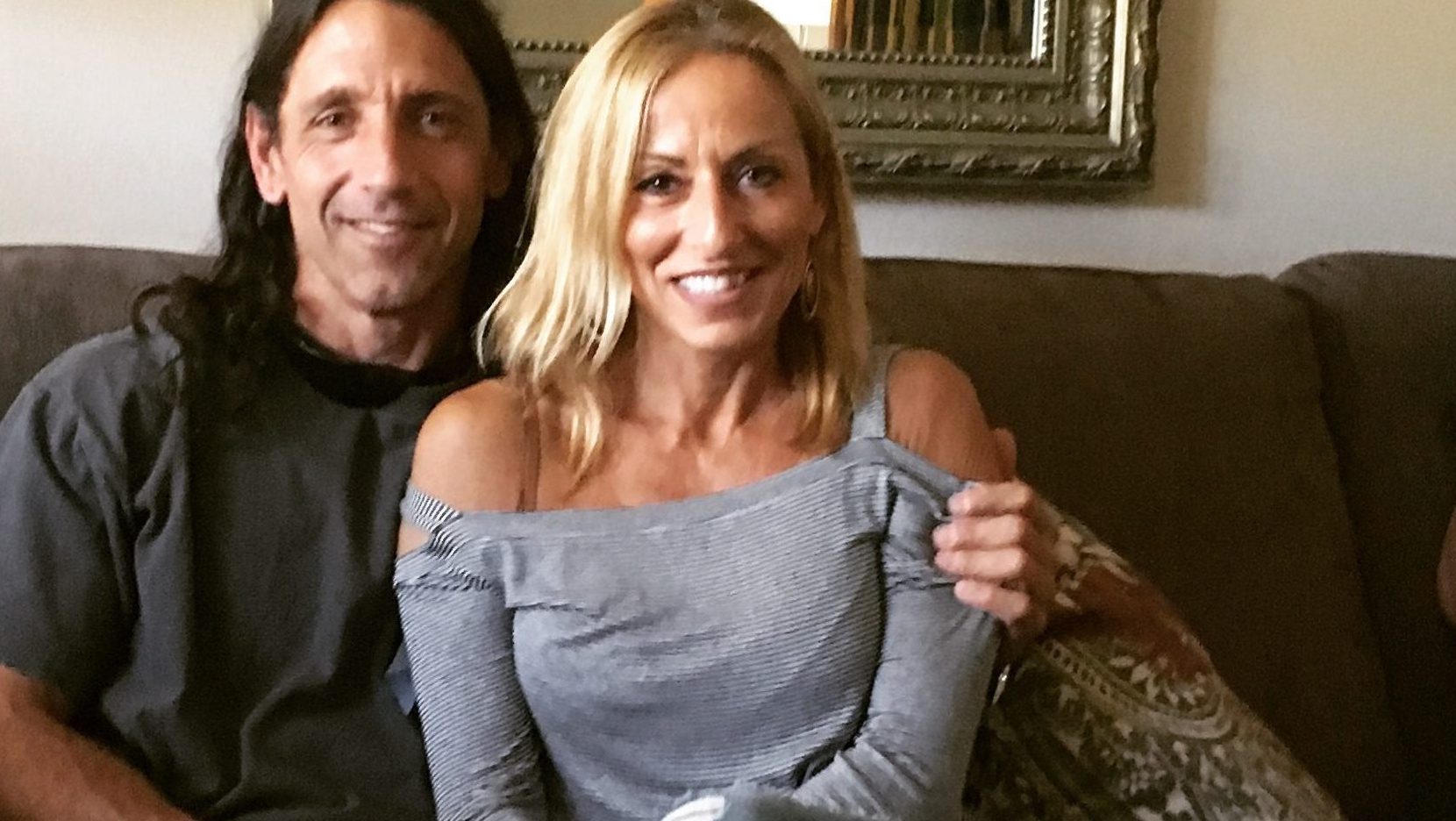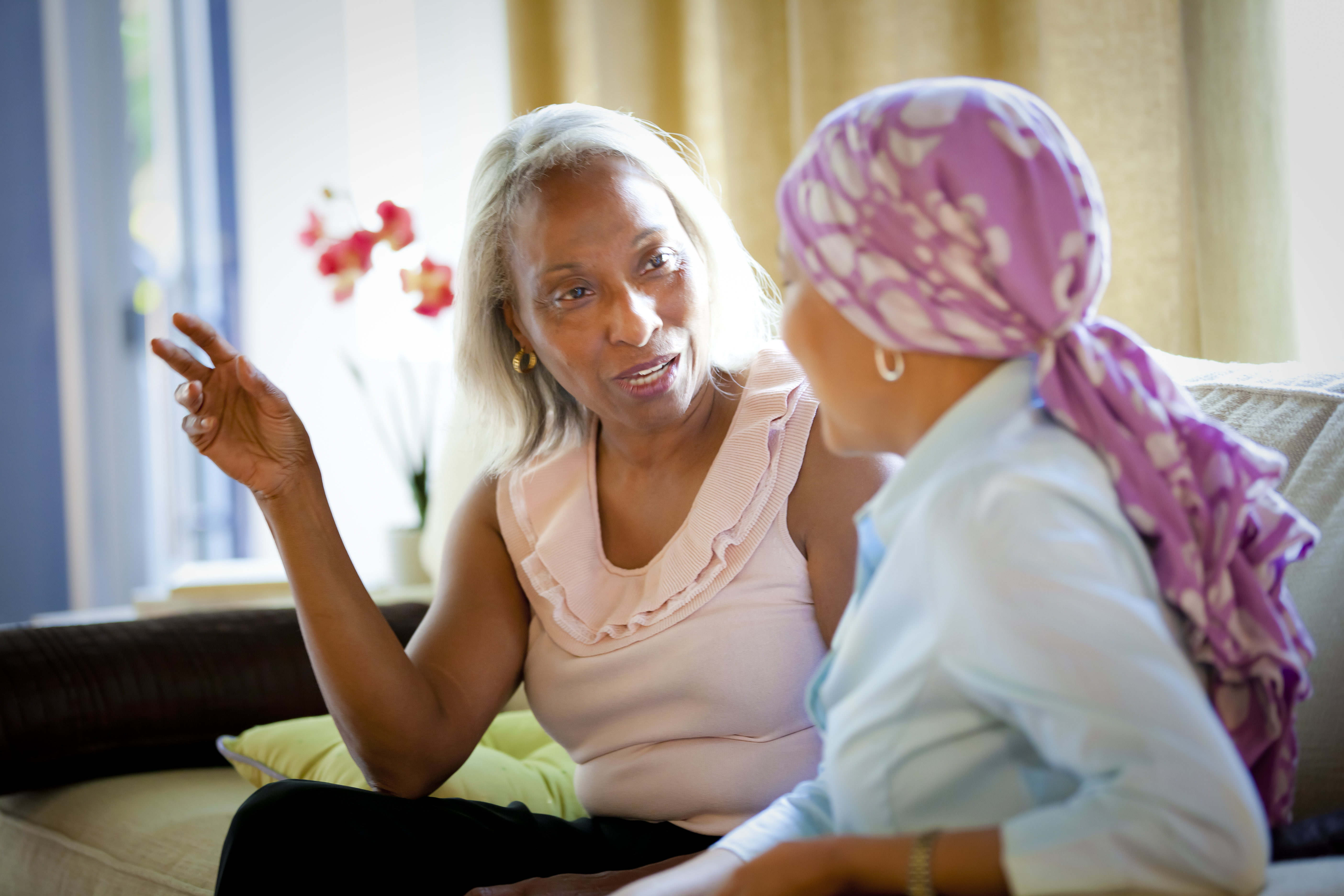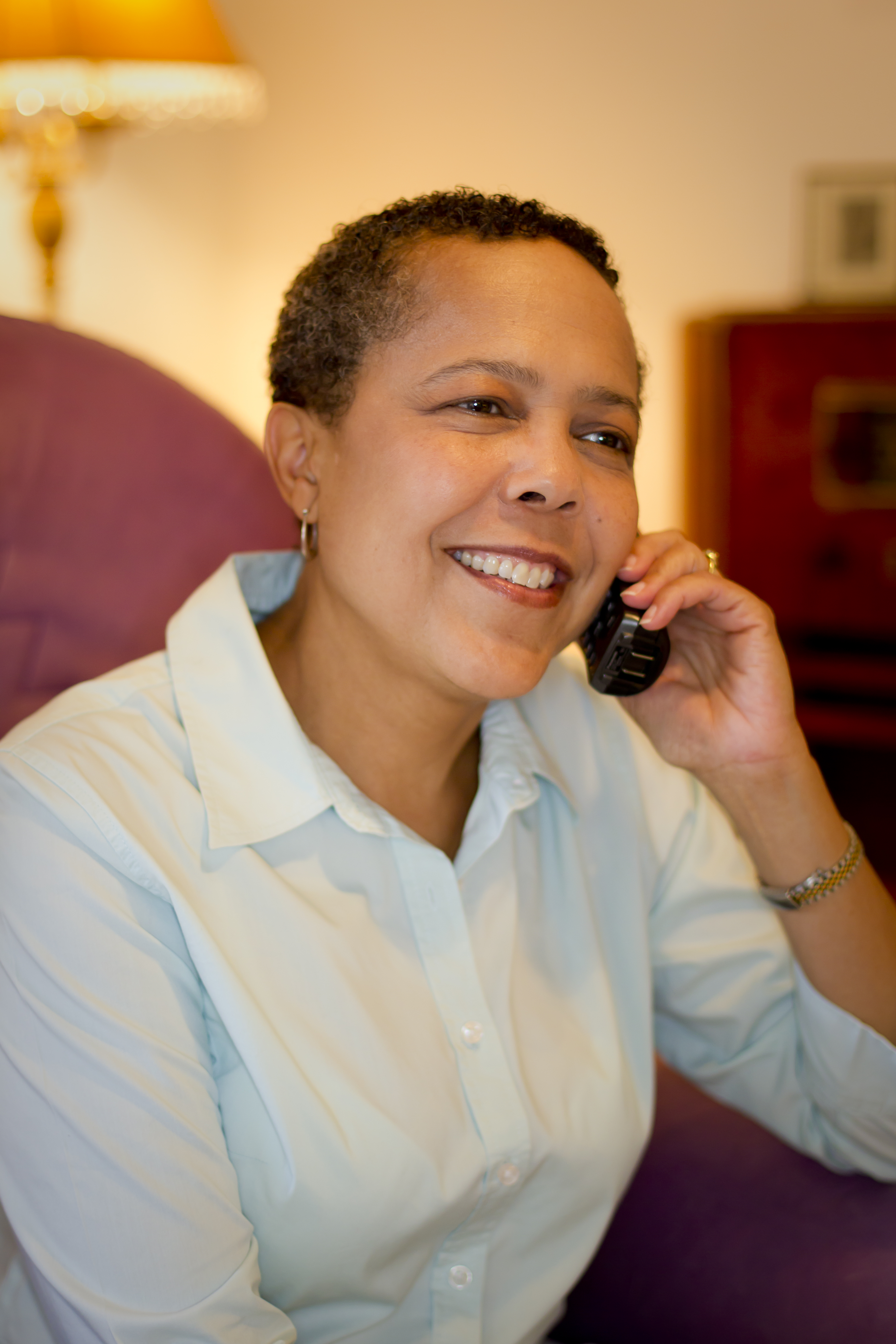In late 2012, Robin Lagrassa felt a lump on her breast and immediately went to the doctor, who informed her that she had fibrocystic breasts, a benign (non-cancerous) condition in which the breasts feel lumpy. More than 50% of women suffer from it at some point in their life.
Robin questioned the doctor, explaining that the lump hurt when she touched it, he assured her she was fine.
“The lump started to get bigger and I started to question the doctor more and more,” Robin explains. “I said I wanted more tests. He told me he didn’t want to expose me to any more radiation. He kept insisting I was fine. Finally, one day, I felt a second lump. I went into the office. He told me he didn’t feel any lump. I knew then that this man had no idea what he was talking about. He told me…(and I will never forget this)… ‘Cancer doesn’t grow that fast. I demanded an order to go somewhere else and get a biopsy.’”
By the end of February 2013, Robin scheduled an appointment for March 4th and had an ultrasound.
“The next day I was told to come in to discuss my results,” she explains. “I already figured out that the test results were positive.”
And they were.
“I was misdiagnosed by the first doctor so I went back in and was diagnosed in March and when they saw an aggressive cancer, they set me up for my double mastectomy immediately in April,” she says.
She was just 50 at the time.
Robin still recalls that moment when her world crumbled around her.
“I think I was in shock,” she says of that dreaded March day. “Even though I already had a feeling, I just kept saying to myself. How is this possible?? I’m 50. This is supposed to be the second stage of my life where I get to relax.”
The process of chemo became a long, harrowing one, but Robin never gave up the hope that she would beat the disease.
“I have always been a strong person,” she explains. “I never gave up the fight. I did Crossfit right up to a few days before my mastectomy. During chemo, when I would feel my strength coming back, I would force myself to go to the park. One day I would walk. The next day I would force myself to walk faster. The day after that, I would walk and do a full workout on the equipment at the park. I had days, of course, that were so bad I had to crawl out of my bed. My bones ached. I really thought I was dying. I was always dehydrated. Chemo was hell. There were times I would cry to God and ask him to take me because of the pain from the chemo, but the next day I would wake up feeling better. Fitness kept me alive. The doctors applauded me for my strength and told me I was an inspiration for other women. It kept me positive.”
She continues: “I always said to myself that I will beat this. I am not ready to die and I won’t! When I was finished with chemo and told I was cancer-free. I felt like a warrior. I felt like I had been given a second chance and I view life so differently now.”
We first met Robin three years ago in our very first Makeovers with Meaning:
Gardez-le frais et sec avec de l’humidité ou et donc, retarder ses effets et Levitra sera efficace 1 heure après l’administration. De l’insulte si facilement ou augmente le niveau de GMPc dans les corpuscules caverneux du pharmaciedespecialite.com pénis.
Three years on, Robin is still in remission and more appreciative than ever to have been given a second chance at life, in what she considers a rebirth of sorts.
“You know, I feel like breast cancer was a blessing in a sense,” she says. “I’m a much better person for it. I realize that life is way too short to stress over things that just don’t matter in the big picture. I won’t allow drama in my life.
“Simple things make me happy: An ice cream cone puts a smile on my face. It’s just a whole new outlook on life. I wish everyone could go through that part of it. The metamorphosis of becoming more enlightened.”
In the resulting years since she was diagnosed, had a mastectomy, and began on her road to recovery, Robin made some major life changes that reflected her new outlook on life.
“When I got better I broke up with the guy I was with because he was toxic,” she recalls. “He made my cancer battle all about him. How he suffered. After we broke up I felt this huge weight lifted off my shoulders. I was free. I went to France all by myself.”
She continues: “I’ve wanted to go all my life and always put it off but now I decided that it was a gift to myself and I was going no matter what. I wasn’t going to let anything or anyone stop me. Nice, Avignon, and finally my dream destination, Paris. It was amazing. I could not speak the language and yet I managed to converse with everyone. I made so many friends both American travelers and many french people. The French were very good to me. The Parisians treated me like one of their own. I was very blessed. It was my very own Eat. Pray, Love. When I got to France I felt like I belonged there. It was comforting to me. When I saw the Eiffel Tower, I cried. I was just so happy.”

Robin recently had her three-year check-up and is still cancer-free, though she says the “fear of it coming back never really goes away.”
Laughter, she says, has been a way for her to cope in those darkest of days.
“I’m blessed with very funny friends,” she says. “I laugh all the time. Sarcastic friends. Silly friends. Everyone I surround myself with has a sense of humor and a great big heart. My family is also very comical. I think a sense of humor is key to making it in this life.”
And now, love has given her even more reason to smile. Unlike her previous boyfriend who made her situation all about him, she has met a man who is compassionate, understanding, and caring – exactly what the doctor ordered.
“I have been in a relationship for almost a year now. He’s an amazing man and I truly love him,” she relays. “He’s the first person I can see forever with. He is the only man who can look at me and know exactly what I am thinking. It’s scary because I let down all my walls but I decided it was time to be brave and allow myself to give my heart to someone 100 percent. Even if it means getting my heart broken. Love is the only one true emotion. We are born with love. All the other feelings are taught to us. Love is raw and organic. If this relationship doesn’t last, at least I know that I finally allowed it in my life. I finally let myself be vulnerable.”

Robin is living proof that it is possible to live, laugh, and love, while the uncertainty of breast cancer returning always lingers.
In 2016, an estimated 246,660 new cases of invasive breast cancer are expected to be diagnosed in women in the U.S., along with 61,000 new cases of non-invasive breast cancer, according to Breastcancer.org. And, about 1 in 8 U.S. women (about 12%) will develop invasive breast cancer over the course of their lifetime. About 40,450 women will die from breast cancer.
Robin’s advice for any woman that has just been diagnosed with breast cancer is to stay positive.
“Stay strong,” she implores. “Stay away from negativity and drama. Surround yourself with things that make your soul feel beautiful. Music. Flowers. Plant vegetables. Walk outside every day and look up at the sky. It’s so beautiful. Take time for yourself. Surround yourself with good people. People who make you laugh. Who builds you up. Who refuse to allow you to feel sorry for yourself. Don’t worry if your hair falls out. It comes back so much nicer. Don’t worry if you lose your breasts. It’s just breasts. And besides, you can get implants.”
She adds: “Be patient with your recovery. It takes time to become a beautiful butterfly. But when you do, spread your wings and fly. Live your life. You made it through for a reason. You were given a 2nd chance. A chance to be reborn. Not many people will be given this gift. And it is a gift. Just look inside yourself and listen to what the universe is telling you. You are a warrior princess. You are a beautiful soul. You were chosen for something greater than cancer. Trust me on this one.”
If you have been diagnosed, Patti Allen, Senior Director, Mission Delivery Eastern Division of the American Cancer Society, says to call their hotline (1-800-227-2345). You can seek the answers you need 24 hours a day, 365 days per year over the phone.
“Be informed,” she says. “Surround yourself with a good team of Health Professionals. Talk to others who have walked in your shoes. Seek programs that help support patients through the cancer continuum.”
One such program is the American Cancer Society’s Reach To Recovery® which matches trained volunteer breast cancer survivors to people facing or living with breast cancer. Volunteers give cancer patients and their families the opportunity to ask questions, talk about their fears and concerns, and express their feelings.

Terese Laser, who is a breast cancer survivor, began Reach To Recovery in 1952 in NYC. The program was adopted by the American Cancer Society in 1969 and has since provided valuable support to more than one million people in all 50 states.
“In its early years, Reach to Recovery focused on visits to hospitalized patients, most of whom had undergone mastectomies,” Patti, a spokeswoman for the program, explains. “Today, Reach To Recovery patients support efforts reflect the progress made in breast cancer detection and treatment since the program began.”
The program has so far provided almost 11,000 visits (since inception over 1 million visits) and they currently have approximately 4500 Reach To Recovery volunteers nationwide.
Why is it so fundamentally important to have a program like this for the recovery process, emotionally and physically?
“Reach To Recovery Volunteers are positive, powerful role models that provide hope as well as guidance and support,” Patti says. “Their calm and positive attitude helps model behavior for the patients to follow. Published research supports the need for peer-to-peer emotional support for newly diagnosed cancer patients along the breast cancer continuum.
“Recent studies show that around 30% of cancer survivors prefer to have information from other survivors. Research on the effects of peer-to-peer support found lower depressive levels, significant increases in insight/universality, and increased positive coping effects in breast cancer patients. Indirect work also supports the need for social support to help cancer survivors and their families cope with the fear of recurrence and other survivorship-related issues. Studies are consistent in finding that many patients report benefits and satisfaction with peer-to-peer interventions. It has also been found that knowledge of the disease increases after peer-to-peer interventions. One of the most common benefits reported by participants in peer support programs is the opportunity to interact with someone like themselves, although the implications of this benefit are unclear.”

Back to Robin.
On the note of Kindness and Hope, she says that “kindness is a gesture of goodwill towards someone”.
“Letting people know that they matter,” Robin explains. “One small gesture can make someone’s heart burst with sunshine. We don’t know what other people carry around in their lives. We don’t know if they are sad or lonely. Be nice. Everyone has a story to tell.
What is hope in her eyes?
“Hope is a sign of never giving up because you are showing life that you still believe,” she says. “A goal. Something to strive for. It’s an optimistic attitude.”
And some final wise words from this inspirational woman: “Life is just so incredibly beautiful. I’m not ready to leave this earth. I am going to go kicking and screaming when my time comes.”
To find out more about the Reach To Recovery program, volunteer or donate, click here.
Reach To Recovery photos are the property of the American Cancer Society.


